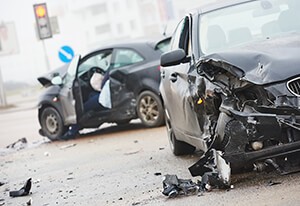What is Comparative Negligence?
Posted December 9th, 2015 by Anthony Carbone, PC.
Categories: Auto Accidents.
 If you’re a resident of New Jersey and ever got into a car accident here, you may have heard the term comparative negligence before. This term is what insurance companies use to figure out the degree of fault that each individual involved in accident has in contributing to the accident. For instance, you stop short at a red light and the car behind rear ends you, that person may get 90 percent of the blame, but you get 10 percent since you stopped short.
If you’re a resident of New Jersey and ever got into a car accident here, you may have heard the term comparative negligence before. This term is what insurance companies use to figure out the degree of fault that each individual involved in accident has in contributing to the accident. For instance, you stop short at a red light and the car behind rear ends you, that person may get 90 percent of the blame, but you get 10 percent since you stopped short.
Comparative negligence is really something you don’t have to worry about unless you are pursuing a personal injury claim against the other driver. What will happen is the insurance companies will examine the facts of the case using evidence such as police reports, witness testimony, and driver statements and determine a percentage of liability to those involved. The insurance companies will base the percentages on contributing factors such as:
- Failing to observe and avoid the other vehicle
- Failing to use your horn properly
- Driver inattention
- Failing to apply the brakes
But what if you don’t agree with the outcome? Can you appeal the decision? Of course you can. You can always try to have supervisor examine the data or even submit a claim to the New Jersey Office of the Insurance Ombudsman and request a review. But sometimes these matters must be taken to the court of law to be worked out.
If you get into an auto accident and don’t agree with the comparative negligence results from the insurance company, we can help! Contact the Law Offices of Anthony Carbone today for a free consultation.


